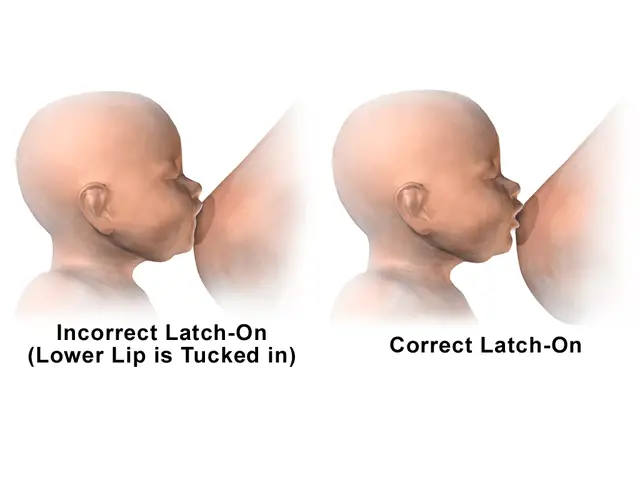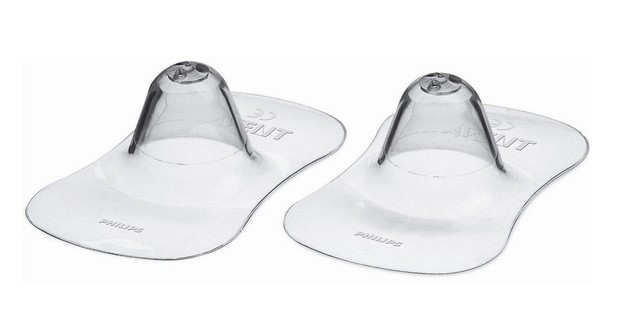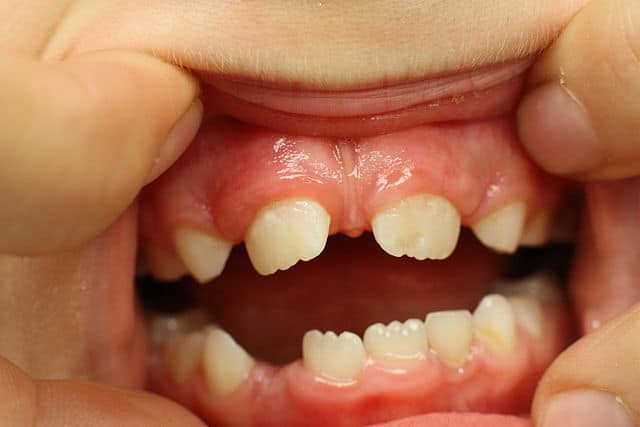Adults often take it for granted that when hungry, the ability to physically consume food is usually not an issue. For newborns, eating is not always so simple. Especially in the early days, the complications that can arise while simply trying to feed your baby can be quite overwhelming! If you are having problems with breastfeeding, have a colicky baby, or your infant is failing to thrive, then you need to know about tongue and lip tie.
What is Tongue Tie and Lip Tie?
If you open your mouth, you will see a little piece of skin holding your lips to the gums. This is your lip tie. Likewise, if you lift your tongue, you’ll see another piece of skin holding it down. This is your tongue tie. The medical term for this location of attachment is the frenulum.
When we talk about tongue and lip tie in infants, it is usually referring to a problem where the tongue or lip tie is too tight or in a position that makes it difficult for tongue movement.
Symptoms Of Tongue And Lip Tie
When the tongue or lip tie is too tight, it can make it difficult for the infant to properly breastfeed. Problems with tongue/lip ties are often misdiagnosed as other conditions such as acid reflux or colic. However, increasingly more physicians are becoming aware of tongue and lip tie problems.
Note that tongue/lip ties cause problems for the mother too, not just the infant. This is because the infant will latch incorrectly.
Tongue/Lip Tie Symptoms in the Mother:
- Breast pain
- Nipple damage
- Clogged ducts
- Flat nipples after breastfeeding
Tongue/Lip Tie Symptoms in the Infant
- Frequent feeding
- Colic
- Gasping on breast
- Poor latch
- Clicking sound while breastfeeding
- Poor weight gain
Diagnosing Tongue/Lip Tie
If you suspect a tongue or lip tie in your child, have your pediatrician examine the child. You can examine the child yourself, but do not rely on a self-made diagnosis.
Remember that looking at photos of tongue/lip ties online to compare to your own child is not a good way to make a diagnosis. An experienced practitioner will know what types of tongue/lip ties to look for and how to evaluate sucking pattern.
Dr. Ghaheri has a great article with step-by-step instructions for diagnosing a tongue/lip tie. (Video below)
Types of Tongue/Lip Tie
Tongue and lip ties are divided into classes. The classes are not like with cancer diagnoses where Class 4 is worse than Class 1. Rather, the classes are divided based on where the tongue/lip tie is located.
- Class 1: Very little attachment.
- Class 2: The attachment is behind the tip of the tongue or lip.
- Class 3: The attachment is near the base of the tongue or lip.
- Class 4: The attachment goes around the hard plate. These must be felt to diagnose.
Class 1, 2, and 3 ties are called anterior ties. Class 4 ties are considered posterior ties. Some children might have both an anterior and posterior tongue tie.
Breastfeeding with a Tongue or Lip Tie
Because a tongue/lip tie can hinder tongue movement, the infant might not be able to latch on properly. To compensate for the poor latch, the infant might need to nurse for a much longer time or more frequently.
Some infants compensate for their inability to latch by using their teeth (when they come in) or sucking much harder. This can result in a lot of pain for the mother.
Treatment for Tongue/Lip Ties
Our awareness of tongue/lip tie problems is fairly new. So, it wasn’t until recently that tongue/lip tie procedures started to be considered normal.
For most mothers, the treatment for tongue/lip ties is to switch from breastfeeding to bottle-feeding. This doesn’t fix the tie, but it does take some of the stress away from the mother and relieves her of breast/nipple pain.
Because breastfeeding is considered superior to baby formula, a lot of women will endure the pain of nursing with a tongue/lip tie. If you don’t want to switch to formula, consider these options instead:
- Pump breast milk and bottle feed
- Use nipple guards to prevent pain
In severe cases, a child with a tongue/lip tie won’t be able to suck even on a bottle. The result is poor weight gain and frequent feedings (which contributes to sleep deprivation for the parents). This is often when surgery for the tongue/lip tie is discussed.
Surgery for Tongue/Lip Ties
There are two types of surgeries that can treat ties. The first is performed by an Ear, Nose and Throat doctor. The doctor uses scissors to cut part of the frenulum.
The second tongue/lip tie procedure is done by a dentist using a laser. Compared to traditional scissors/knives, there are a lot of benefits to laser surgeries.
Lasers seal capillaries, blood vessels, and nerve endings immediately as they cut. The result is less pain, faster recovery, and reduced risk of infection.
You can see detailed pictures and steps about the procedure here.
Risks of Tongue/Lip Tie Surgery
The procedure for fixing tongue and lip ties is very simple and there is little risk. However, some patients do experience scarring. There are exercises which can be done (which mostly involve bending/moving the child’s lips and tongue) to prevent scarring after the procedure.
Is Tongue/Lip Tie Surgery Worth It?
Bringing your infant for any type of surgery – even a minor one like tongue/lip tie revision – is stressful. Many parents opt not to do it and their children go on to thrive. However, many parents report that their breastfeeding problems immediately got better after the surgery recovery.
Your decision to revise the tongue/lip tie is highly personal. It will likely depend on how serious the tie and symptoms are. Talk to your doctor about whether it is worth it for your specific case.
Possible Consequences of Untreated Tongue/Lip Tie
Severe tongue/lip ties might cause problems into childhood and adulthood. These include:
- Poor dental hygiene
- Eating difficulties
- Gagging on food
- Difficulty fully opening mouth
- Troubles with speaking
- Migraines
- Neck pain
- Grinding teeth
- Overbite
- Gap in front teeth
These symptoms occur because of how the muscles in the tongue attach to the hyoid, mandible, and temporal bone. A thick or tight frenulum tie can cause those muscles to become overly engaged and strained.
Note that these symptoms are very rare. However, as our awareness of tongue/lip ties increases, we are seeing increasingly more reports of people attributing their adult problems like migraines to ties.
Gaps in the Front Teeth
Of all of the potential long-lasting consequences of tongue/lip ties, the one in our research that seemed to concern parents the most is the risk of a tooth gap.
An upper lip tie can cause a gap because it pulls on the gumline. This type of gap is a maxillary midline diastema.
As Dr. Christopher Chang notes here though, teeth gaps are incredibly common in children. More than 50% of children between the ages of 6 and 8 will have a gap. These gaps usually resolve on their own – especially when adult teeth start coming in. Only 5% of children will still have a gap by the age of 15.
So be cautious before having lip tie surgery because of a gap in the front teeth. Your doctor may recommend you wait until the child’s teeth come in completely before deciding to fix a lip tie because of this concern.
Conclusion
Better informed parents generally feel more at peace with decisions, so if you have any doubts call your pediatrician!
What have your experiences been with tongue tie or lip tie?
Image credits: Structures of the mouth, by OpenStax College, Creative Commons Attribution 3.0 Unported license. Breastfeeding: Incorrect vs Correct latch On, by BruceBlaus, Creative Commons Attribution-Share Alike 4.0 International license. ZahnTrema, by Sterilgutassistentin, Creative Commons Attribution-Share Alike 3.0 Unported license. References for this article: https://fauquierent.blogspot.rs/2014/08/does-upper-lip-frenulum-removal-help.html https://www.quora.com/How-can-tongue-tie-cause-headaches http://chirocentre.co.uk/rare-case-tounge-tied-cause-neck-pain-headaches/ http://yourcoloradodentist.com/lip-and-tongue-ties/older-children-adults-tongue-ties/ https://www.breastfeeding.asn.au/bf-info/tongue-tie http://feedthebabyllc.com/tongue-and-lip-tie/ https://breastfeedingusa.org/content/article/tell-me-about-tongue-ties http://www.drghaheri.com/blog/2014/10/8/the-difference-between-a-lip-tie-and-a-normal-frenulum http://www.sdbfc.com/blog/2014/3/4/does-your-baby-have-a-tongue-or-lip-tie.html https://tonguetie.net/consequences/ https://balancedbreastfeeding.com/tongue-tie/ https://www.mommypotamus.com/a-step-by-step-guide-to-diagnosing-tongue-ties/





